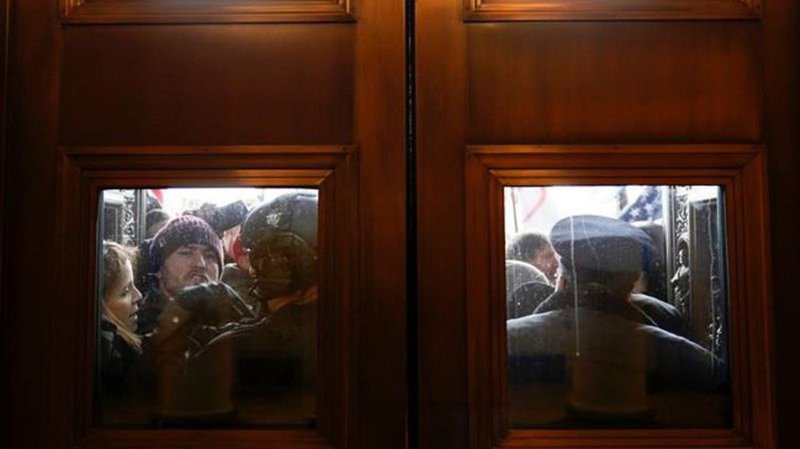
Capitol rioters make questionable claims about police
PHOENIX — Joshua Matthew Black said in a YouTube video that he was protecting the officer at the U.S. Capitol who had been pepper sprayed and fallen to the ground as the crowd rushed the building entrance on Jan. 6.
“Let him out, he’s done,” Black claimed to have told rioters.
But federal prosecutors say surveillance footage doesn’t back up Black’s account. They said he acknowledged that he wanted to get the officer out of the way — because the cop was blocking his path inside.
At least a dozen of the 400 people charged so far in the Jan. 6 insurrection have made dubious claims about their encounters with officers at the Capitol. The most frequent argument is that they can’t be guilty of anything, because police stood by and welcomed them inside, even though the mob pushed past police barriers, sprayed chemical irritants and smashed windows as chaos enveloped the government complex.


